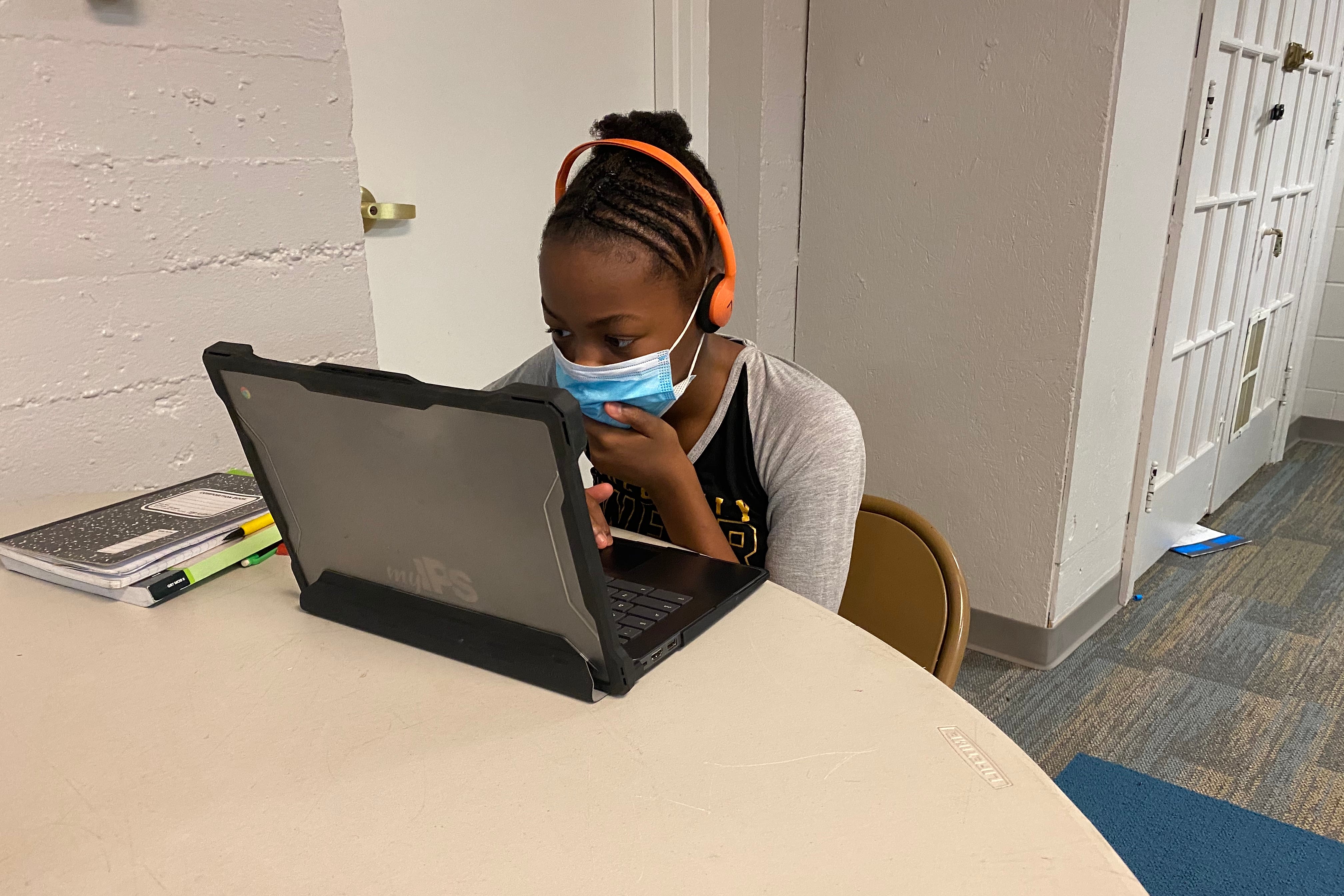Detroit Superintendent Nikolai Vitti is considering whether to shorten the quarantine period for asymptomatic students in an effort to keep more students in classrooms.
Vitti wants to lower the quarantine period to 3-5 days. Currently, the district’s policy requires unvaccinated students to isolate for 7-10 days.
“We believe that a 3-5 day quarantine period for unvaccinated students (with testing negative) is more appropriate,” Vitti wrote in an email to Chalkbeat.
If Vitti makes the change, it will mark a departure from guidelines set by the Detroit Health Department, whose lead the Detroit Public Schools Community District has followed throughout the pandemic.
The health department has said it is only providing guidance, and the district can decide to change its policies on its own. With more than 500 students quarantined one week earlier in October, Vitti says that time may have come.
“We are considering moving to a 3-5 day quarantine due to our testing system,” Vitti said.
Detroit looks for changes to quarantine length
As more schools see COVID outbreaks, student quarantines are worrying school leaders as they look for ways to keep students in school as much as possible.
As of the school week ending on Oct. 15, the Detroit school district reported 416 students were in quarantine. The previous week saw a high of 532 students in quarantine.
Detroit’s weekly school-based testing, Vitti says, is contributing. More testing means identifying more asymptomatic students with COVID. Then, more students are identified as close contacts, requiring more quarantines.
The Detroit school district is seeking revised guidance from the health department that recognizes the district’s testing plan and would help reduce the amount of time asymptomatic close contacts are away from in-person learning.
“We have tried to stay consistent and aligned with their guidance because they are the medical experts,” Vitti said. On quarantine length, he added, “The state health department provided school districts and local health authorities a lot of flexibility that [the Detroit Health Department] has not applied to schools in the city.”
The city’s health department didn’t respond to that criticism, and hasn’t said whether changes are on the way. The department makes recommendations to Detroit school districts, which then are responsible for making their own guidelines and protocols, according to Randy David, the department’s chief epidemiologist.
Quarantine guidance depends on several factors, David said in an email, including student testing consent rates, schoolwide vaccination rates, city COVID transmission levels, and guidelines from state and federal health officials.
Detroit is a leader in getting consent for testing, with roughly half of the district’s students having submitted consent forms to take a COVID test, according to Vitti. By comparison, just over a third of eligible New York City students have submitted their consent forms for the city’s school-based testing program.
On vaccination, Detroit still lags. For now, about 45% of Detroit residents ages 12 and older have received at least one vaccine dose, behind nearby county and statewide figures.
Until guidance changes or the district changes its policies, school officials say they are working to keep students connected to school. Quarantined students are provided laptops and internet access by the district, Vitti said, but as the district saw last year, numerous students failed to stay logged on through the school day.
“The challenge is that healthy children are disconnected to the learning environment, which negatively impacts student achievement and attendance,” Vitti said.
“Most of our families do not have the flexibility to work from home and it places undue pressure on families to have children stay at home. All of this also exacerbates an already high chronic absenteeism rate.”
Short-staffed districts lag behind on schoolwide testing
School-based “test-to-stay” programs are gradually becoming an alternative used by school districts to avoid sending students home if they spent time near someone who tested positive for COVID. The plans enable unvaccinated students who test negative for COVID to remain in the classroom provided they are asymptomatic and wear a mask indoors.
The Centers for Disease Control and Prevention views test-to-stay as a “promising practice,” according to its website, and has been working with multiple school districts to “evaluate the effectiveness of this strategy.”
Detroit isn’t yet planning a test-to-stay program, but it is ahead of many other districts in conducting regular screening tests. Some Michigan districts lack the staffing capacity to offer in-house testing on a regular basis.
Royal Oak Schools is not offering school-based testing for students and staff, according to superintendent Mary Beth Fitzpatrick, but the district is taking recommendations from the Oakland County Health Division to administer its quarantine guidance.
“We don’t have the capacity and manpower to organize a screen testing program to that extent,” said Kim Baron, health services director for Grand Rapids Public Schools.
Others are just getting started. Ypsilanti Community Schools recently began offering free PCR and antigen testing through a partnership with regional nursing programs to administer tests.
In Grand Rapids, families have found it challenging to get tested and receive results in a timely fashion. In part, as a result, the city’s district is preparing to host its own drive-up testing site in partnership with Kent County Health Department and a local laboratory for three days a week.
In the absence of a test-to-stay plan, Baron has had a share of Grand Rapids parents voice their fatigue over having to quarantine their children, but many are still supportive of the district’s current guidance.
“The majority of our families would be more upset if we did away with quarantine than that initial frustration when it hits them personally,” Baron said.







